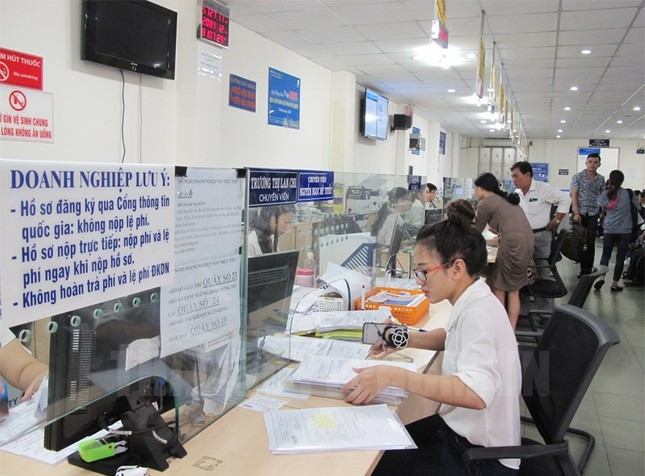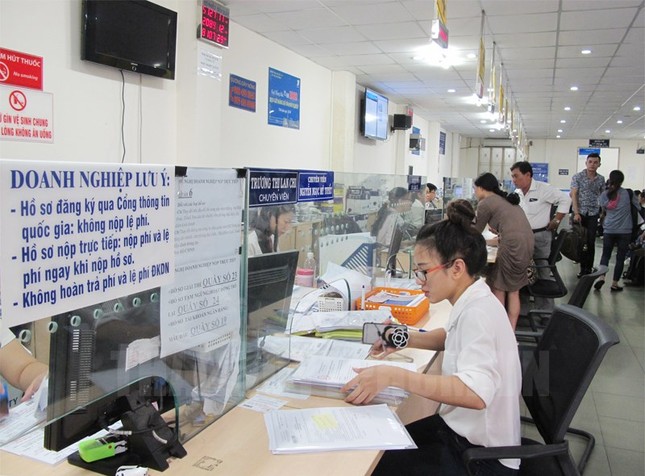Vietnam’s Ministry of Planning and Investment is reviewing and evaluating the implementation of the 2020 Enterprise Law after four years, with a view to proposing amendments and supplements. While the law has had positive impacts and contributed to an improved business environment, feedback from government agencies, local authorities, and businesses highlights persistent challenges and obstacles in its practical application.
The main issues stem from ambiguous and vague provisions, leading to differing interpretations, as well as certain rules being out of touch with reality. The Ministry identified three key problem areas: inconsistencies between the Enterprise Law and specialized laws, such as regarding private bond issuance by non-public companies; inadequate supervision, inspection, and state management of enterprises post-registration; and lack of specificity in measures to prevent and address fraudulent capital contributions, shadow investments, and fake legal documents for business establishment or invoice trading.
Furthermore, the current law does not restrict the number of enterprises an individual can establish or represent simultaneously, which has been exploited by unscrupulous individuals for fraudulent activities and personal gain. The Ministry also noted a lack of clarity in provisions on business establishment, including restrictions on individuals prohibited from establishing or managing enterprises, requirements for personal identification numbers and electronic identification accounts during registration, and notification obligations for changes to registration information. Issues were also identified regarding enterprise management and governance rules.

The Enterprise Law lacks specific measures to address fraudulent capital contributions and shadow investments.
To address these challenges, the Ministry of Planning and Investment will propose amendments based on feedback from various stakeholders, including government ministries, local authorities, associations, and businesses. Suggested changes include introducing the concept of beneficial owner based on anti-money laundering regulations, as business registration is the crucial first step for any enterprise entering the market. Additionally, the Ministry proposes restricting/banning the issuance of bearer shares and adopting the international practice of nominal directors.
Vietnam’s Economic Landscape in the First Month of 2024
In January 2024, the country witnessed the reactivation of nearly 13.8 thousand businesses, which is 2.2 times higher than December 2023 and represents an 8.4% decrease compared to the same period in 2023. This resulted in a total of over 27.3 thousand newly established and reactivated businesses in January 2024, marking a 5.5% increase from the previous year.
Prime Minister: Building and enhancing institutions to create new resources, motivation for development
In conclusion of the Government’s specialized session on law building in January, Prime Minister Pham Minh Chinh emphasized that institutions, mechanisms, and policies are the source of development and must undergo innovative thinking and approaches to generate new resources, motivation, and inspiration for the whole society, mobilizing comprehensive strengths for development.
The Great Salary Survey: Unveiling the Truth Behind Enterprise Paychecks
The investigation will be conducted across 3,400 businesses in 18 provinces and cities, representing 8 economic regions of the country. These regions are carefully selected based on their thriving business landscapes and vibrant labor markets, ensuring a comprehensive understanding of economic dynamics and employment trends across Vietnam.
Unveiling Strategies to Combat ‘Phantom’ Enterprises
The current Enterprise Law lacks specific measures to prevent and address issues such as fictitious capital contributions, virtual capital, underground investment, and the use of fake legal documents to establish businesses and engage in invoice trading. To address these issues, the Ministry of Planning and Investment is studying and proposing amendments and supplements to the relevant regulations.











































